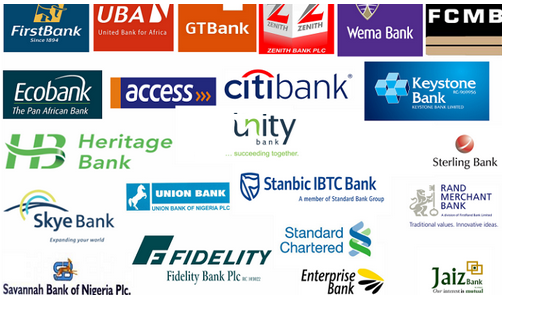
On the 27th of May, I got an SMS notification from Zenith Bank that my account has been debited of N52.50, as MasterCard monthly fee, and my balance was at the deficit of N8.42. On the 30th of May, I received another transaction notification: “SMS Notification Charge, Deducted Amount, N12.” My balance deficit climbed to N20.42 by the 23th of June, I was indebted to ZenithBank to the tune of N80. Five days after, my deficit shot up to N141.30, as a result of N8 SMS notification charge for the month of July. All these happened in a savings account.
This means, you can leave N10, 000 in your savings account with a Nigerian Bank, and at the end of the year the Bank will take almost half of the money for charges. It is an extortionist situation applicable to countries like Nigeria, which goes against the ethos of savings account.
Savings account is defined as “a basic type of Bank account that allows you to deposit money, keep it safe, and withdraw funds, all while earning interest.”
Register for Tekedia Mini-MBA edition 18 (Sep 15 – Dec 6, 2025) today for early bird discounts. Do annual for access to Blucera.com.
Tekedia AI in Business Masterclass opens registrations.
Join Tekedia Capital Syndicate and co-invest in great global startups.
Register for Tekedia AI Lab: From Technical Design to Deployment.
Unfortunately, the above definition does not apply in Nigeria, it’s the other way round. Bank customers are being ripped off on a daily basis in the name of “maintenance charges” that has little or nothing to do with transactional charges incurred through banking activities.
I thought about the charges and realized that there has not been significant difference since 2017, when Nigerians went confrontational and demanded that the Central Bank of Nigeria (CBN) reverse some of the rules on banks charges, because it’s becoming more like extortion in the interest of the banks alone, and customers were bearing the brunt. The National Assembly intervened and directed the CBN to quash some of the charges. Well, it’s 2019, and the aforementioned experience is an indication that many of us are working to enrich the banks.
In 2012, Innoson Nigeria Ltd, a customer to Guaranty Trust Bank (GTB) was unlawfully imposed such charges upon, and its current account was debited of N700 million. It took a careful audit for the company to find that out, and it became an eye opener to others who lodge huge sums with the banks. But then it took arbitrary turns before we know it, and every bank account holder in Nigeria is at the receiving end.
In the first quarter of 2019, top 5 Nigerian banks made a total of N15.7 billion from account maintenance charges. They are as follows:
- Zenith Bank: N5.238 billion.
- First Bank: N3.218 billion.
- GTB: N3.045 billion.
- Access: N2.212 billion.
- UBA: N1.967 billion.
This whooping sum was extorted from the monies that should be yielding interest to Depositors, a reason why Nigerians embarked on a #Endbankingfraud campaign on Social Media for months. Well, the campaign didn’t change anything if not that it created the awareness that Nigerians are getting ripped off by banks, and the enormity is alarming.
ATM cards are issued to customers to ease the number of people on the counter trying to withdraw, so in a way, customers are helping the banks to do their job by using their ATM cards. Therefore, they should be compensated through interests for doing the job they did not sign up for. But that’s not the case, and that’s not the only pain that Nigerians go through in using the ATM. The three withdrawal limit when you are using other banks ATMs, and N20, 000 cash maximum on the withdrawal menu of many ATMs are to ensure that customers who have more cash to withdraw pay charges for doing so.
The Consumer Protection Council seems helpless as the charges are backed by the CBN. And there is less people can do other than complain and seek refuge in Thrift Collectors (Alajos). However, the sundry charges have become a hurdle to banking inclusion advocacy. A student who is counting on the N1000 left in his account would be disappointed seeing that he can’t access the money because his bank has debited N200 from his account for sundry charges. The next time he would keep his money to himself however else he can. The banking recapitalisation is an evidence that Nigerian Banks can function without ripping their customers off. There is a whole lot of lucrative businesses and ideas to invest in. So instead of counting only on depositors money to stay in business, the CBN should ensure policies that will make banks business innovative.



